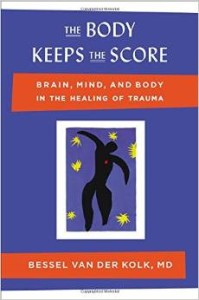 This is the first of two blog posts on the culture of addiction that I first uploaded to the website back in 2013. They are strongly based on the seminal writings of William (Bill) White, in particular from his stimulating book Pathways from the Culture of Addiction to the Culture of Recovery. In this book, Bill provides key insights into how we can help people move cultures—essential in their journey along the path to recovery.
This is the first of two blog posts on the culture of addiction that I first uploaded to the website back in 2013. They are strongly based on the seminal writings of William (Bill) White, in particular from his stimulating book Pathways from the Culture of Addiction to the Culture of Recovery. In this book, Bill provides key insights into how we can help people move cultures—essential in their journey along the path to recovery.
‘Culture’ generally refers to patterns of human activity and the symbolic structures that give such activities significance and importance. Wikipedia
Drug users often seek out and build relationships with other people whose drug use is similar to their own. They become part of small groups within which they can nurture the rituals of drug use. These groups interact with other drug-using groups, ultimately forming a broader network of users who share common goals and attributes. These social networks constitute a fully organised culture, one that has an existence and power that transcends individual membership.
In his book, Bill White emphasises the importance of understanding the culture of addiction. He emphasises that many addicts find it easier to break their physiological relationship with the drug than to break their relationship with the culture in which they use the drug. Clearly, one needs to understand how to move someone from the culture of addiction to the culture of recovery.

 It is important to note the close similarity in the nature of elements that underlie recovery from serious substance use problems and recovery from mental health problems.
It is important to note the close similarity in the nature of elements that underlie recovery from serious substance use problems and recovery from mental health problems. For anyone interested in the healing of childhood trauma, I strongly recommend you read,
For anyone interested in the healing of childhood trauma, I strongly recommend you read,  I recently found this very interesting and important piece of research from 2012,
I recently found this very interesting and important piece of research from 2012, 
 I’ve been away visiting family this weekend and haven’t had a chance to prepare a new set of blog posts for this week. I therefore thought I would re-post some of my old favourites from the past this week, which will give me time to prepare new ones for next week.
I’ve been away visiting family this weekend and haven’t had a chance to prepare a new set of blog posts for this week. I therefore thought I would re-post some of my old favourites from the past this week, which will give me time to prepare new ones for next week.  I continue with my series of blog posts relating to the factors that facilitate recovery from addiction, which I have detailed in the second last chapter of my eBook
I continue with my series of blog posts relating to the factors that facilitate recovery from addiction, which I have detailed in the second last chapter of my eBook  In
In 




